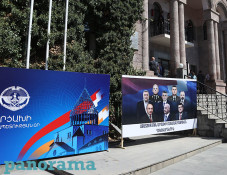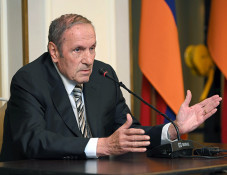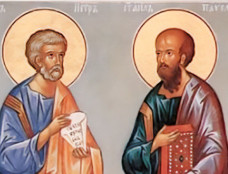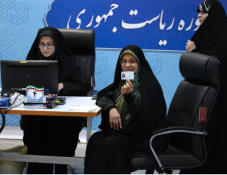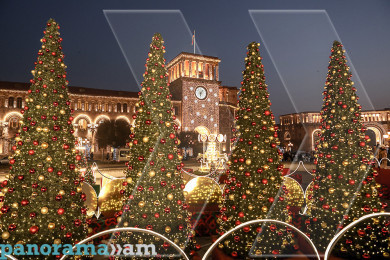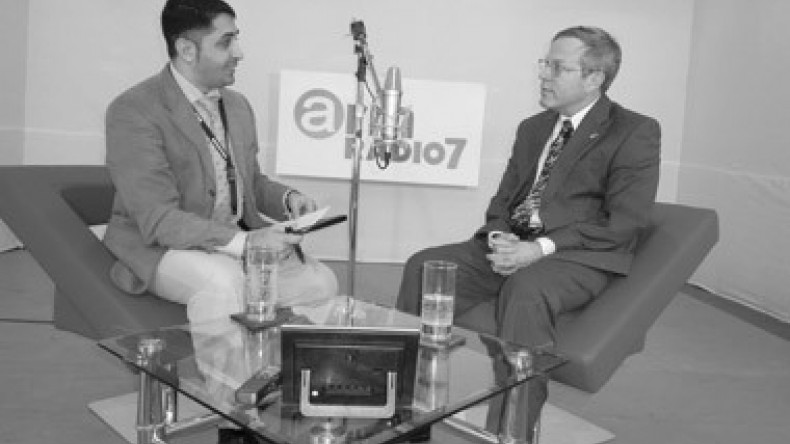
John Heffern: President Sargsian to be very courageous
“20 minutes” analytical program aired by ArmRadio-FM107 hosted on Tuesday Ambassador Extraordinary and Plenipotentiary of USA to Armenia John Heffern. Read the interview with US Ambassador below.
Q: Mr. Ambassador, first of all I want to wish you a very fruitful and ambitious stay in Armenia during your diplomatic mission here, and I also want to thank you for accepting this invitation.
A: I am delighted to be here. My wife and I are just delighted with the warm welcome we received in the three months. We’ve only been here for three months so far in Armenia.
Q: So, let me ask you… why did you accept your nomination to Armenia? Why Armenia? Why not another country?
A: Well, we compete for the Ambassadorship. Obviously, every Foreign Service Officer wants to be an Ambassador. So we compete based on vacancies. I bid on Armenia, I am very interested in Euro-Atlantic security and Eurasia, and from my time at NATO I worked closely with the Armenian delegation to NATO. You have great diplomats in Brussels at NATO. And I thought it would be interesting to tackle some of the difficult regional issues here, and Embassy Yerevan was good place to do it.
Q: What are the main priorities for the United Stated vis-à-vis the region of the South Caucasus, in general and Armenia, in particular?
A: Well, I would say the three priorities that we have in Armenia, and it’s the same for the Caucasus as well, the first one is the regional piece. What we very much want to do is we want to help Armenia break out of this regional semi-isolation that it’s in, with the two closed borders. We strongly support the protocols, President Sargsian very courageous to sign the protocols with Turkey. We very much want the protocols to be implemented and Turkey to honor its commitment to implement the protocols. So, the regional peace is first, resolving Nagorno-Karabakh peacefully is equally important obviously. The second piece though is economics. We very much want to work with Armenia, trade and investment, which will require some work here on the business climate to make Armenia a little bit more attractive to foreign investors. So, the second piece is to improve our economic relationship. And the third piece is obviously the elections, and the democracy, and the human rights. Very important elections here this year and next year, and we’d like to be helpful to make these the best elections ever.
Q: Do you think that in 2012 the US should be more active in pushing again Turkey or may be both Turkey and Armenia in normalizing their relations as agreed in Zurich in 2009?
A: Well, Secretary of State has said very clearly – the shoe is on Ankara’s foot. So we are pushing Turkey to honor, to implement the protocols that President Gul signed in Zurich with President Sargsian and Secretary Clinton, as she said, without conditions. There are no preconditions for the protocols, and we believe that Turkey should implement the protocols as signed. And that’s our priority – is to encourage and cajole and push Turkey to do what it promised to do in Zurich.
Q: What about the OSCE Minsk Group? Some experts think that the US is not that active as Russia for example. Do you think that in 2012 the US will be more active in this issue?
A: Well, I don’t accept the premise that we haven’t been active enough because we are a key part of the Minsk Group, the three countries – Russia, France and the United States are equal partners in the Minsk Group. President Obama has met on a number of occasions with President Sarkozy and President Medvedev, Deauville, most recently, where they issued statements on the process, encouraging the two parties, Armenia and Azerbaijan, to endorse the basic principles, peaceful resolution, based on the Madrid principles. And so, I would say that we have it about right, and we are going to continue to push, we will be present at the upcoming meetings in Sochi, and we are very hopeful that this time the two leaders will be able to reach agreement on the basic principles.
Q: Is the American foreign policy on Armenia changing over years due to geopolitical shifts after the Georgian-Russian conflict in 2008, the rapprochement process between Armenia and Turkey, the Iranian issue, recent “Arabic spring”, and other developments? If so, in what ways?
A: I don’t know that it’s changing; I don’t know that our foreign policy toward Armenia is changing. Our goals here have been, again, to break the isolation as the first piece, relative isolation, not total isolation; you have two neighbors with whom you trade – Georgia, especially. So that’s our first piece – the Turkey piece and the Azerbaijan piece. But also, you mentioned Russia and Georgia. Our only goal here, vis-à-vis Armenia and Russia, is to help Armenia have options. Armenia, any country needs to have options. You can’t be totally dependent on any one partner. So, we are trying to promote our partnership with Armenia so Armenia continues to look toward Europe and the United States as partners. That’s our second goal. Help break the regional isolation and keep Armenia focused on its partners in the West.
Q: So, mainly what you mean is that Armenia needs alternatives
A: Alternatives. Any country needs options. No country can be totally dependent on one partner or one border, and that’s why countries need options, and we hope that through partnership with the Unites States, through partnership with the European Union, Armenia will see that it has options and take advantage of those options.
Q: Do you share the view that American and Russian interests are opposed to one another in this region, in particular in Armenia? If so, in what ways?
A: You say opposed to each other? No, I don’t think they are opposed to each other. Most specifically in the Minsk Group. Russia is a key part of the Minsk Group. The three countries, the three Minsk Group countries, Russia, U.S. and France, are working hand in hand to bring a peaceful resolution, promote a peaceful resolution to Nagorno-Karabakh. And so I think our interests in that regard are very close, identical. Obviously we have differences of opinion over Georgia, and we were strongly critical of the invasion of Georgia and occupation of the territories in Georgia, and we want Russia to honor its Geneva commitments on Georgia. But in terms of Armenia, the major intersection that we have with Russia is on Nagorno-Karabakh, and we are a close partner with Russia on Nagorno-Karabakh.
Q: The United States has a profound interest in stability and peace in many conflict zones, including the South Caucasus. For instance, in Taiwan’s case the US officially recognizes the concept of One China, but maintains relations with Taiwan, mainly based on what is called ‘people-to-people’ relations. Despite China’s protests, the US names those contacts as contributing to the regional peace and stability.
I realize and completely accept that each conflicting situation has its own peculiarities. Still my question is what obstacles are objectively present to prevent the same-type ‘people to people’ relations between the United States and Nagorno-Karabakh; relations, which wouldn’t imply any political recognition, but could, for example, deepen the democratic development in Karabakh. Why there are still restrictions for the U.S. officials to visit Nagorno-Karabakh?
A: We very much take the lead from the Minsk Group on this. My boss on Nagorno-Karabakh is Ambassador Bob Bradtke, who is our Minsk Group negotiator, and we do what will help him promote a peaceful resolution on Nagorno-Karabakh. And if that means go to Nagorno-Karabakh – we would go to Nagorno-Karabakh; if that means don't go– we don't go. And we have a modest aid program, assistance program; humanitarian program for Nagorno-Karabakh, about two million dollars a year, and we’ll continue that program, and that’s a useful one. I hope the people of Nagorno-Karabakh appreciate it and have benefitted from it. And I think that’s about right. Whenever Ambassador Bradtke changes my instructions, then I’ll be happy to go.
Q: Until you nomination as US Ambassador to Armenia, you served as Deputy Permanent Representative at the U.S. Mission to NATO. You know very closely this institution and I want to know what is your opinion about Armenia-NATO relations or how they should be?
A: Armenia is an important partner for NATO, and I think Armenia has benefitted, and NATO has benefitted, from the relationship in three main areas. The first area is operational. NATO right now is very deeply involved in operations. The ISAF operation, Afghanistan is ongoing, a major commitment. NATO just completed an operation on Libya. So I think NATO is focused more on operations right now that anything else. And Armenia is an important contributor to the ISAF operation in Afghanistan. It has just recently tripled the number of troops that it sends to help the alliance and help the Government of Afghanistan against the Taliban there. So we deeply appreciate that, and I think Armenia is getting some benefits in terms of training and experience from that operation. So first, operationally, the partnership is strong. The second is in the area of defense reform. What NATO has been best at, NATO’s greatest success, I think, has been to help the countries of Eastern Europe, former Warsaw Pact countries, and now some of the former Soviet Union countries, to adapt their militaries toward Western values: civilian control of the military, appropriate treatment of civilians in wartime – those international law kind of principles and values have been brought into the relationship between all the partners at NATO. And Armenia has really done a very, very good job in that regard, in terms of reforming the military establishment here. So, I said the operational piece is first, the second piece would be the defense reform, and the third piece is the whole stability piece, what we were just talking with Nagorno-Karabakh and support for peaceful resolution of Nagorno-Karabakh. That’s not a NATO issue per se, but NATO needs to have stability and security on its periphery, and resolution of Nagorno-Karabakh would be an important contribution in that area.
Q: Do you see Armenia in NATO in the near future?
A: I don’t think Armenia has ever expressed an interest in the membership action plan or pursuing membership. Any European democracy is welcome to apply. I don’t see it in a foreseeable future, but if Armenia is interested, obviously we’ll see that NATO would work with them toward that goal.
Q: Several times the US made it clear that it is not happy with close relations between Armenia and Iran. However the reality is that due the blockade by Azerbaijan and Turkey, the most part of Armenia’s foreign trade is done through Iran. So, to what extent US sanctions against Iran can seriously affect Armenia’s political, social, and mainly economic areas?
A: This is one of the main topics of my discussions at the foreign ministry and in our bilateral discussions on foreign policy issues - is how to deepen our cooperation on Iran, to work more closely together on Iran, and I say there is two pieces of it. The first piece is the piece you mentioned – the sanctions piece, and Armenia is a member of the United Nations and is subject to UN Security Council resolutions and is honoring those commitments. Armenia is honoring its international commitments, honoring sanctions against Iran, international sanctions against Iran, and so we deeply appreciate Armenia’s support and commitment in that important area. And there is a cost to them, an economic cost issue, as you just mentioned. So, that’s important, and we’re working with them on that. On the other side of the house, some of the political resolutions, the UNGA resolutions, we’ve been disappointed with some of Armenia’s votes so when they voted with Iran on some of the political resolutions and so we continued just to discuss that with them. But we do very much appreciate their support on the sanctions issue and we continue to work with them on that.
Q: What is the likelihood of military actions or use of force by the international community against Iran?
A: Well the tension of course has recently increased due to the Iranian threats to the Strait of Hormuz, and President Obama and Secretary Clinton have made it very clear that we consider the Strait of Hormuz an international Strait, an international waterway, and we are committed to keep those open. As an international waterway it’s open to international shipping --both military and civilian – obviously a huge percentage of the world’s oil goes through there, so we need to keep that open and we are committed to keeping that open. We hope for a peaceful resolution there, and there hasn’t been any military action, and so we certainly hope there won’t be any military action. In terms of any other kind of military action, obviously I’m not privy to anything, we’re not planning anything, and I don’t have any particular comments on what any third countries might do.
Q: A recent report from the IAEA suggested that Iran is still suspected of secretly attempting to obtain the capacity to develop an atomic bomb. On the other hand, nuclear peace theorists and some experts argue that under some circumstances nuclear weapons can induce stability and decrease the chances of crisis escalation. For example, the United States and the Soviet Union managed to live with nuclear weapons during the Cold War. Now, it’s so between the US and Russia. Or another example is Pakistan and India. May be the best option would be to reach a global nuclear zero situation as supported by president Obama. However, the nuclear proliferation is still a highly debated issue, especially in the context of the Iranian nuclear program. So, why the U.S. and Israel are so upset by Iran's apparent pursuit of such weapons? What if Iran gets a nuclear weapon?
A: Well, Iran is a member of the Nuclear Non-Proliferation Treaty and therefore is subject to international requirements of the International Atomic Energy Agency – the IAEA- and the UN Security Council resolutions, and it is openly flouting those commitments. It’s a member of the NPT and needs to abide by the NPT as a non-weapon state. That’s what it’s committed to do. The IAEA, many resolutions, strong majorities in favor of the resolutions against Iran, urging Iran, pushing Iran, pressuring Iran not to develop nuclear weapons and the UN Security Council has had many resolutions along the same way. So we want Iran to honor its international commitments. It is allowed certainly under the NPT to have peaceful nuclear power. The peaceful use of nuclear power is open to Iran as it is to any country, and we support that, we don’t have any problem with Iran having nuclear reactors that are subject to IAEA inspection and following its international commitments. It’s only the clear determination to develop the weapons, which has raised our deep concern and which the Obama Administration and our allies, including the P5 plus one, are determined to stop.
Q: Some US officials recently stated that the Obama administration sees economic sanctions against Iran as building public unrest that will create hate and discontent at the street level so that the Iranian leaders realize they need to change their ways. Do you agree or not? And… can all this finally lead to a sort of an “Iranian Spring”?
A: The speculation about the motives, I can’t really comment on that speculation. What I’d say is that in our view time is not on the side of the Iranian regime, the “Arab spring” has changed a lot of countries in the region, in the very recent past Iran has also had demonstrations that in some ways resembled a bit what’s happened in Egypt, Tunisia and some of the other countries. So we hope that one day the people of Iran will have a government that represents them, a legitimate government that is determined to find, to advance their welfare. And that’s what we are going to continue to promote.
Q: Since its independence in 1991 Armenia has signed three agreements with the U.S. affecting trade between these two countries. Since then, a number of U.S.-owned companies currently do business in Armenia. Unfortunately, there are less Armenian companies doing business in the US. So, how do you see dynamics in Armenia-US economic relations for 2012?
A: I think we need to do better. I really do. I think we can do better, and I think we need to do better. I think our trade, our bilateral trade is a pittance really. It’s under two hundred million dollars a year, total bilateral trade, two-way trade, and that’s really a pittance and I think we can do better, and I am committed to do better when I’ve spoken with your President, your Foreign Minister, your Trade Minister, your Economy Minister, your Prime Minister, I’ve committed to try to do better, to develop the economic relationship between the US and Armenia. On the investment side, and my message to your leaders is clear on this as well, I think the business climate here needs some improvement. I am having some luck in getting American companies interested in investing here, but we would be much more effective developing the relationship on the investment side if we could improve the investment climate here, if Armenia would do some more, would make some more progress on governance, on rule of law, contract sanctity. I think it would help me get more US investment here. If Armenian companies wanted to invest in the United States, obviously I’d welcome that as well. I haven’t really worked too much on that side, but I worked more to deepen our partnership here in Armenia.
Q: When the preferential trade agreement with Armenia shall be finalized and enforced to produce results?
A: Preferential Trade Agreement means different things. I mean we have the GSP, the Generalized System of Preferences, Armenia benefits from that, as do many countries, so it’s an international program that we have, Armenia benefits from the GSP, the Generalized System of Preferences, we haven’t to my knowledge had any discussions with the Government of Armenia on any kind of a free trade agreement or any kind of a really deep Preferential Trade Agreement like that. I think it will be a long time before we get to that stage.
Q: Do you think that the Millennium Challenge Program will continue in 2012?
A: I don’t think it will continue this year. We just concluded a very successful five-year program. We are very proud of what we were able to do with our Armenian partners in the rural development part of the MCC. It was a very sizable program where we did a lot of water projects, irrigation projects all around Armenia. I’m going to be visiting a couple of them very soon, and I’ll see firsthand some of the benefits of this and we are very proud of that. Right now, Armenia doesn’t meet the indicators on the governance and rule of law side, so at some point, so we will continue to work with them to improve this performance in those indicators so that in some future year, hopefully not too far away, Armenia could be eligible for a second compact, but I don’t expect it in 2012.
Q: A big number of Armenian citizens have real difficulties to obtain a US visa even though they seem to provide all required documents and evidences of financial situation. You know… it’s also kind of humiliating for many of them to be rejected by the US Embassy when applying for a visa. Do you think that now the timing is good for Armenia and the US to be involved in visa facilitation process as we can see between Armenia and the EU?
A: Yeah, I have heard a lot about the negotiations between Armenia and the EU on the visa facilitation, and that would be great if that could happen. For us it’s a little bit different, it’s not a matter of documents, it’s a matter of people’s intentions. What the law requires us to do is to judge somebody’s intentions. It’s very hard to judge somebody else’s intentions. And so the more we see Armenian students, Armenian business people, Armenian tourists going to the United States, doing their business, doing their studies, having their vacations and then coming back to Armenia, the more we see that, the better it will be and the higher the percentage of visas that we would be able to issue.
Newsfeed
Videos








